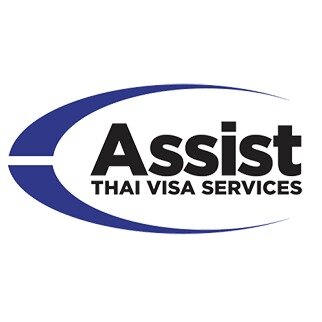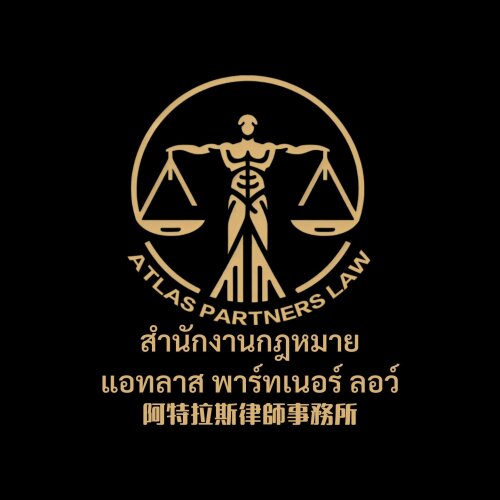About Work Permit Law in Chiang Mai, Thailand
The work permit is a legal requirement for foreigners who wish to work in Chiang Mai, Thailand. It is issued by the Department of Employment and is necessary for anyone planning to be employed by a company or to run their own business in Thailand. The work permit ensures that the individual has a legitimate right to work in the region and is typically linked to a specific job and employer. As Chiang Mai continues to grow as a hub for digital nomads and expatriates, understanding the nuances of the work permit law in this area is crucial for anyone planning to make Chiang Mai their work destination.
Why You May Need a Lawyer
Securing a work permit in Chiang Mai can be a complex process that involves navigating various legal regulations and requirements. Here are some common situations where legal assistance might be necessary:
- Translation and interpretation of relevant laws and application forms.
- Assistance in meeting complex documentation and procedural requirements.
- Legal advice on employment contracts related to foreign employment.
- Help in appealing if a work permit application is denied or if complications arise.
- Guidance in renewing a work permit or changing employers while holding a permit.
Local Laws Overview
Chiang Mai, like the rest of Thailand, follows strict regulations regarding employment of foreigners, which are consistent with national standards. Key aspects of the local laws include:
- Foreign nationals must obtain a non-immigrant visa before they can apply for a work permit.
- The position offered must not be one that is restricted to Thai nationals.
- An employer must demonstrate why a Thai national cannot fill the position.
- Work permits are tied to specific employers and job roles.
- Some professions are exclusively reserved for Thai nationals.
Frequently Asked Questions
What is a work permit and why do I need it in Chiang Mai?
A work permit is an official document issued to a foreign national to legally work in Chiang Mai. It is necessary to ensure compliance with local labor laws.
How do I apply for a work permit in Chiang Mai?
You must first secure a non-immigrant visa, usually type B, then submit your application through the Department of Employment with required documents, such as a sponsor letter from your employer, contract, and relevant personal documents.
Can I work in any job with a work permit?
No, the work permit lists specific roles you can perform. It is tied to your job description and employer listed in the permit.
What happens if I change employers?
You must obtain a new work permit that reflects your new employment situation. The process involves canceling the existing permit and applying for a new one.
How long is a work permit valid for and how can it be renewed?
A work permit is typically valid for one year, with the possibility of renewal as long as the employment relationship continues and all legal requirements are met.
Can the work permit be canceled?
Yes, a work permit can be canceled if you violate the terms of the permit, change employment without following the proper procedures, or if the sponsoring company ceases operations.
Are there any professions that are off-limits to foreigners in Chiang Mai?
Yes, certain professions are restricted to Thais only, such as certain artistic crafts, agriculture-related jobs, and some types of trading.
Is my work permit valid in other parts of Thailand?
Your work permit is generally valid in other parts of Thailand as long as you continue working in the role specified. However, any change in employment requires update and possibly reapplication.
What are the penalties for working without a permit?
Working without a permit can result in fines, deportation, and being blacklisted from re-entering Thailand.
Who issues the work permit in Chiang Mai?
The work permit is issued by the Department of Employment, which operates under the Ministry of Labor in Thailand.
Additional Resources
For further assistance, you can contact the following organizations or bodies:
- The Employment Office in Chiang Mai
- The Immigration Bureau for visa-related inquiries
- Thai Chamber of Commerce for business-related support
- Embassy or Consulate of your home country for additional support and information
Next Steps
If you need legal assistance with a work permit in Chiang Mai, consider taking the following steps:
- Research and contact a qualified lawyer or law firm specializing in immigration and employment law in Thailand.
- Prepare all necessary documents and details of your specific case (visa, contract, employer details) to provide to your legal advisor.
- Schedule a consultation to discuss your specific needs, which will allow your lawyer to provide tailored advice and solutions.
- Stay informed about any new developments or legal changes regarding work permits by connecting with local expatriate communities and resources.
Lawzana helps you find the best lawyers and law firms in Chiang Mai through a curated and pre-screened list of qualified legal professionals. Our platform offers rankings and detailed profiles of attorneys and law firms, allowing you to compare based on practice areas, including Work Permit, experience, and client feedback.
Each profile includes a description of the firm's areas of practice, client reviews, team members and partners, year of establishment, spoken languages, office locations, contact information, social media presence, and any published articles or resources. Most firms on our platform speak English and are experienced in both local and international legal matters.
Get a quote from top-rated law firms in Chiang Mai, Thailand — quickly, securely, and without unnecessary hassle.
Disclaimer:
The information provided on this page is for general informational purposes only and does not constitute legal advice. While we strive to ensure the accuracy and relevance of the content, legal information may change over time, and interpretations of the law can vary. You should always consult with a qualified legal professional for advice specific to your situation.
We disclaim all liability for actions taken or not taken based on the content of this page. If you believe any information is incorrect or outdated, please contact us, and we will review and update it where appropriate.















